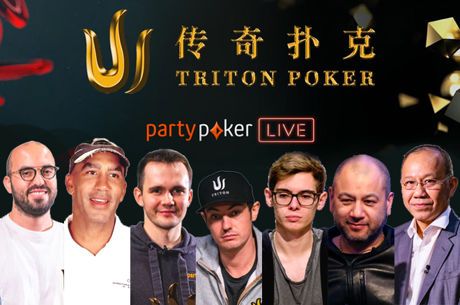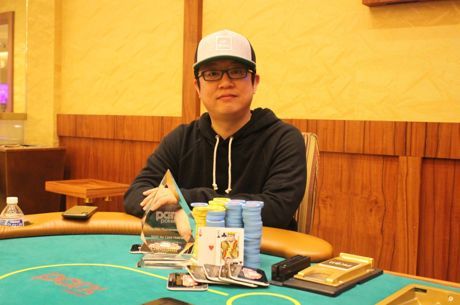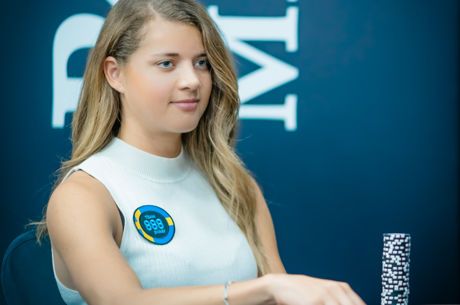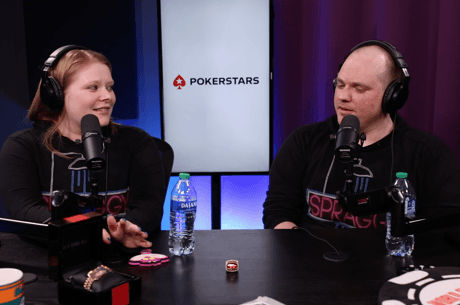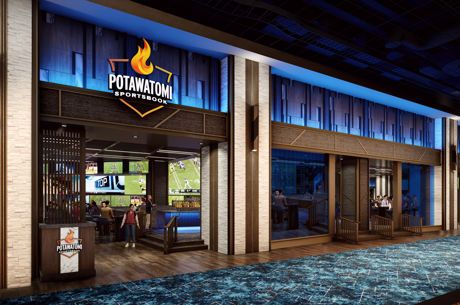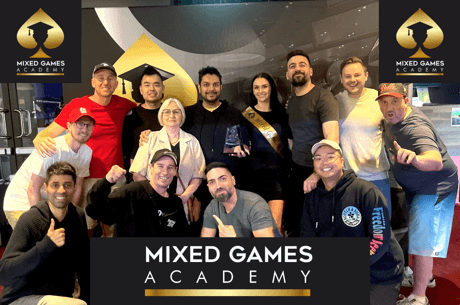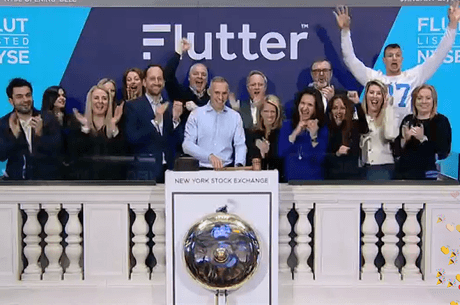Bill Perkins Weighs in on 50-50 Pro-to-Rec Model from Recent Triton Million
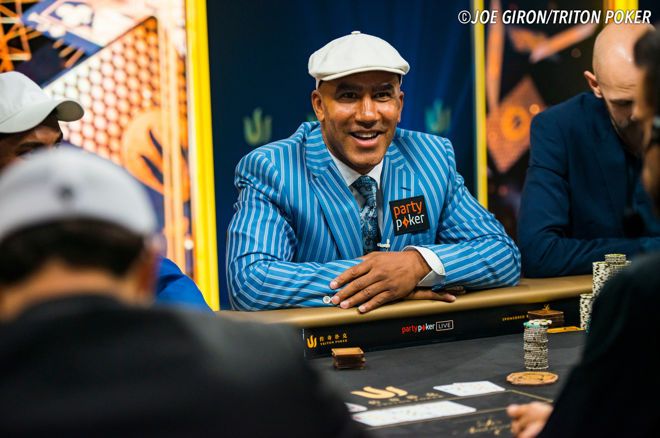
Besides boasting the largest-ever poker tournament buy-in at £1,050,000 ($1,325,351), the recent Triton Million – A Helping Hand for Charity event that took place in London earlier this month also introduced an interesting new format for bigger buy-in tournaments regarding arranging the lineup of players who will participate.
These million-dollar tournaments usually have a set number of seats to be filled, but who actually gets to take those seats has been a thorny question. With the traditional rake from the event going to charitable causes, the more players they can get involved, the better. On the other hand, many players became reluctant to participate after the initial 2012 event, with numbers falling in 2014 and even the 2016 "recreational only" model drawing a smaller field than promised.
Bill Perkins: “If you’re trying to attract the rec player, it doesn’t feel good when it’s 10% you and 90% pros.”
In some past super high rollers, some seats have been reserved for recreational players, the wealthy business types, which is generally enough to entice professional high-roller players from a value standpoint. From there, some form of lottery for the remaining seats is a common approach, one that leaves the final decisions of who gets to play up to chance. For a detailed look at participants in previous million dollar-plus buy-in events, check out this PokerNews article.
Tournament operators are always on the lookout for different and better ways of approaching various elements of the game, and the Triton Poker group tried out a new approach to filling the million-dollar seats at Triton London at the beginning of this month. They went with a 50-50 balance of “recreational” and “professional” players to fill out what would eventually be a field of 54 players to create a huge prize pool of £54 million.
The Set-Up
According to the Triton Poker site, a committee determined the status of players as either recreational player/businessman or professional poker player, the former receiving invitations and the latter being referred to as guests of the recreationals. The roster was set up so that the invited “recs,” once they had made their £50,000 deposit and were accepted by the committee, could then appoint or “invite” one guest that could then reserve their spot as well.
The line between pro and rec players can sometimes be blurred, depending on the individual’s circumstances, and many respected but non-professional players were among the “rec” contingency. Still, the designations assigned seemed to be generally accepted by participants in the event.
“I think with the stakes lower, you would see more like 100 businesspeople willing to play.”
While it wasn’t crystal clear exactly how the interested businessmen/rec players were determined, or how they went about picking their pro counterparts, the Triton website explained that potential guests could express their interest in playing to the committee to get their name added to a waiting list, which was shared with the invited players. It seemed the wealthy recreational players were sought out and invited, with a pro being somehow assigned to each rec that signed up.
The result was a mix of high rollers who do not play poker professionally and top pros who would be battling for seven- and eight-figure paydays, and a whopping £2.7 million (~$3.25M) from registration fees going to charity.
Another unique element enforced in the event was that the rec and pro players were separated through Level 6, at which time a redraw was done to combine the two groups. Every pro-rec registered pair was also kept on separate tables, only to be allowed to play at the same table if they made the final nine.
Player Opinions
Feedback from players involved in the event seemed overwhelmingly positive and PokerNews got in touch with one duo in particular to ask about how they viewed the Triton experiment.
Dan Smith, who finished third for £7,200,000, said of the event: “I had some reservations when I heard about it, but they pulled it off, drew a huge number of players, especially compared to last year’s One Drop. With millions raised for charity, I think it’d be hard to argue the event was not a big success.”
Bill Perkins, Smith’s recreational counterpart in the event, agreed about the success of the tournament as a whole and found a lot to praise. On his way to Portugal for vacation when he found out about the event, Perkins found some friends to buy pieces and decided at the last minute to head to London to play — and he was glad he did.
“If you’re trying to attract the rec player, it doesn’t feel good when it’s 10% you and 90% pros,” said Perkins. He admits, the 50-50 idea was appealing. “Ego gets you and you start to think, I can survive a bunch of other businessmen and end up at the final table. I think it really brought us out of our shells.”
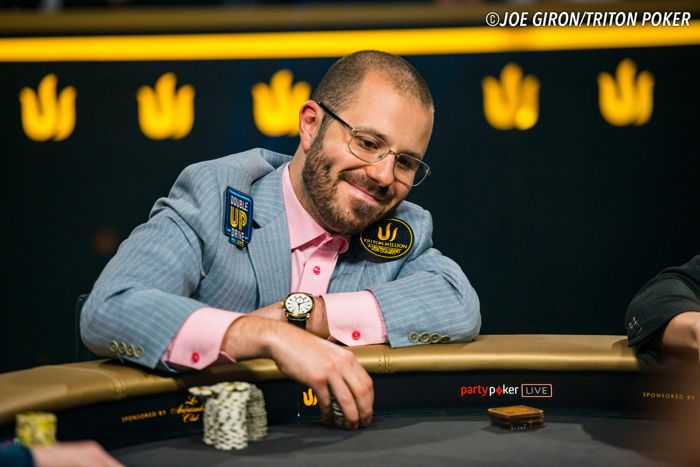
Indeed Perkins was able to outlast most of the other recs, making the final table and finishing in sixth place for a payday of £2,200,000. The only rec-designated player to outlast him actually was eventual winner Aaron Zang.
Perkins was a fan of the novel approach of keeping the recs and pros separate for the first six levels of the tournament as well.
“At the end of the day, the recs feel like another rec is getting their chips if they lose,” he said.
He continued: “If your idea is to expand poker and get people interested, enough incentive to get business people to come out and take their chances – it’s difficult to get business ppl who aren’t studying all the time to go out and say, 'Oh I wanna battle with a bunch of pros.' But if you set it up as they did – a three-day tournament that doesn’t take too long and make it so you don’t have to battle pros from the start…it feels good.”
Too Big?
Perkins’ main suggestion for improvement was to lower the buy-in as he thinks the structure would draw many more recreational businessperson types with a still large but lower buy-in, say in the ballpark of $300,000 to $400,000.
He pointed out that even though those types may have disposable income, they still have limited funds for firing on things like poker tournaments, especially as individuals who don’t have the time to devote to studying the game as the pros they’ll be up against do. It’s also harder for them to sell action as compared to the professional players.
“I think with the stakes lower, you would see more like 100 businesspeople willing to play,” he said.
With the pro-rec duo set-up, Perkins shared that he had a piece of his pro, Dan Smith, which seemed to be common. He also didn’t think too many pros had too large a percentage of their own action, which perhaps lends more support for his suggestion that such events come with a smaller price tag.
Open Access
One interesting question that arises in the invite-only format used by Triton is one of equity and access. Did all who wanted to play the event get to play? How possible would it be for a relative outsider interested in playing in a such a field to get in? How many such people even exist anyway? These are the kinds of questions that come to mind when considering this latest approach to filling high roller seats.
One of the beautiful things about poker is the ability for anyone with the funds to saddle up and sit with players of the highest caliber – unlike sports like golf or tennis which require qualifications and amateurs or recs will not be able to compete at the highest levels. That begs the question, does this type of enclosed selection process threaten the openness that lies at the heart of tournament poker? Or does it even matter at this level of the game with its relatively small pool of potential players?
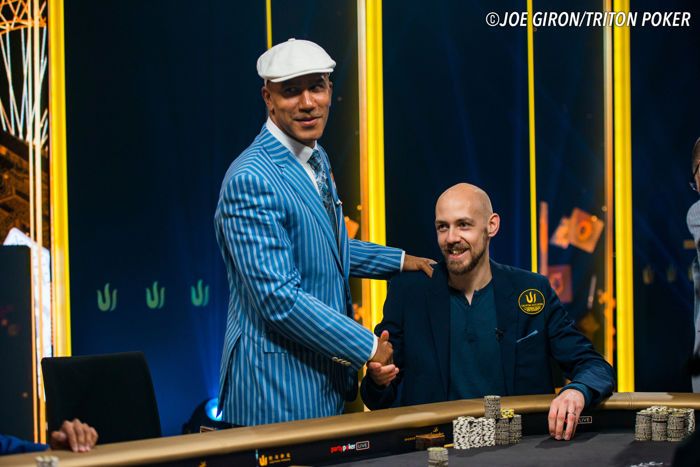
In Perkins’ estimation, some interested pros were excluded, but that seemed to be a foregone conclusion considering the premise. As he pointed out, the number of entrants was capped by the number of businesspeople or recreationals they could get to pony up the seven-figure buy-in.
“That’s unfortunate but it was designed for a purpose and it fulfilled its purpose,” was Perkins’ assessment.
While certain players may have been excluded, it was likely only professionals who wanted a chance at playing for the highest of stakes in a relatively soft field. Perhaps more important from players’ perspectives is striking the right balance of recreationals and pros, and drawing more recs into big poker tournaments, which this event seemed to effectively accomplish. As Perkins mentioned, more room would have likely been made for any other businesspersons or wealthy recreationals who were interested in partaking.
Benefits of No Late-Registration
A resulting benefit of having the registrants confirmed prior to registration, and having them in rec-pro duos, is the great potential for side action that could be booked around the event.
For the players themselves, this resulted in some side bets, notably in the form of Bryn Kenney booking action on his team – himself and Cary Katz – against any other team that people wanted to bet against them. After finishing second and getting the biggest payout in the event due to a deal made heads-up, Kenney cleaned up on these side bets.
“[It's unfortunate some pros were excluded] but it was designed for a purpose and it fulfilled its purpose.”
These types of freezeout events that require pre-registration and disallow late registration could also make possible some interesting fantasy poker potentials where people could choose players and create fantasy teams for the event, not unlike the $25K fantasy and the ODB fantasy leagues that exist around the summer WSOP. In those, there’s no assurance of how many events a player will play, which can make them less appealing for the average fan.
It will be interesting to see how the registration design from the Triton Million will continue to evolve and how the idea will be adopted and adapted for other poker events in the future, but it seems it has potential for helping to grow the game in beneficial ways.
The high roller action continues with partypoker LIVE MILLIONS Europe in Rozvadov where more Triton Poker events are currently underway. You can follow the live updates right here at PokerNews.

